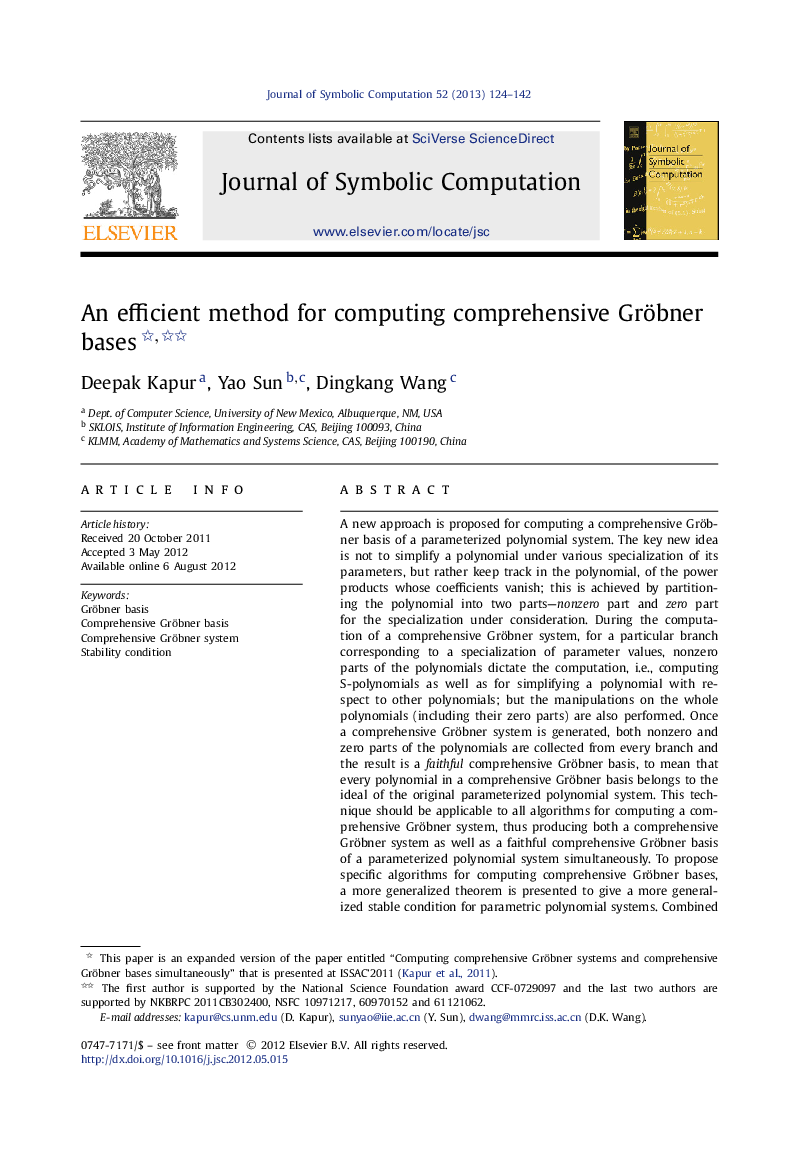| Article ID | Journal | Published Year | Pages | File Type |
|---|---|---|---|---|
| 401551 | Journal of Symbolic Computation | 2013 | 19 Pages |
A new approach is proposed for computing a comprehensive Gröbner basis of a parameterized polynomial system. The key new idea is not to simplify a polynomial under various specialization of its parameters, but rather keep track in the polynomial, of the power products whose coefficients vanish; this is achieved by partitioning the polynomial into two parts—nonzero part and zero part for the specialization under consideration. During the computation of a comprehensive Gröbner system, for a particular branch corresponding to a specialization of parameter values, nonzero parts of the polynomials dictate the computation, i.e., computing S-polynomials as well as for simplifying a polynomial with respect to other polynomials; but the manipulations on the whole polynomials (including their zero parts) are also performed. Once a comprehensive Gröbner system is generated, both nonzero and zero parts of the polynomials are collected from every branch and the result is a faithful comprehensive Gröbner basis, to mean that every polynomial in a comprehensive Gröbner basis belongs to the ideal of the original parameterized polynomial system. This technique should be applicable to all algorithms for computing a comprehensive Gröbner system, thus producing both a comprehensive Gröbner system as well as a faithful comprehensive Gröbner basis of a parameterized polynomial system simultaneously. To propose specific algorithms for computing comprehensive Gröbner bases, a more generalized theorem is presented to give a more generalized stable condition for parametric polynomial systems. Combined with the new approach, the new theorem leads to two efficient algorithms for computing comprehensive Gröbner bases. The timings on a collection of examples demonstrate that both these two new algorithms for computing comprehensive Gröbner bases have better performance than other existing algorithms.
